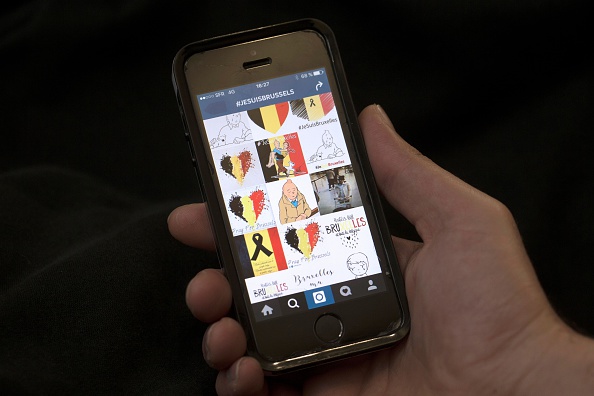Here’s a sobering fact for you: yesterday in Brussels, Isis sympathisers killed five times as many civilians in one hour as British airstrikes have killed or injured Isis fighters in Syria since December. At the last count, in late February, British airstrikes over Syria had killed or hurt just seven Isis fighters in three months. Seven. Not even 10; seven. In Brussels, a small gang of Isis fanboys killed 35 civilians.
British airstrikes in Syria were launched to great fanfare in the aftermath of the terror attacks in Paris in November. Hillary Benn was widely hailed for his Commons speech in which he said, ‘What we know about fascists is that they need to be defeated.’ Much of the media went into Churchillian mode. There was a feeling that, like our grandfathers 70-odd years ago, we were off to fight fascism. The reality has been rather different. It took four weeks for British airstrikes to kill a single member of Isis. Many of the strikes were done with drones, leading one military aviation expert to brand Britain’s intervention a ‘non-event’. And then in February it was confirmed that, so far, only four British strikes have hit Isis fighters, causing seven deaths or injuries. Churchillian? Dad’s Army, more like. Of course there are good reasons why Isis bombers in Brussels killed more people in one hour than the RAF have killed Isis fighters in Syria. Those terrorists are all about killing. That’s their aim: to slaughter as many as they can with their primitive bombs and to create a media spectacle of bloodied Westerners. The RAF, on the other hand, must take care to avoid civilian casualties, and is as interested in weakening Isis by attacking its infrastructure as it is in killing Isis fighters. And yet there’s no doubting the chasm that now exists between our leaders’ rhetoric about Isis and the action they’re willing to take against it. They describe Isis as a colossal, existential threat to Western values, yet they send no men, no ground troops, to wage war against it. Just the occasional manned flight or some flying robots. Listening to our leaders’ heated talk about fighting fascists and watching their less-than-heated action in Syria, we’re left with this stickler: either they don’t believe their own rhetoric about Isis being a grave moral threat and thus are quite chilled out about attacking it, or they do believe it but lack the bottle, the moral resolve, to fight Isis for real. I think it’s the latter. This is the defining feature of the Isis era: the West has the military might to fight Isis, but not the moral conviction. It has the machinery, the men, but it lacks the thing every warrior needs: a deep belief in what he’s fighting for, in this case the idea that our enlightenment values, our free, open societies, are superior to their backward way of life. We in the West agree that we hate Isis, but we don’t agree that the Western way of life is something worth defending, or even something we should be especially favourable about anymore. We see this severe self-doubt after every attack. After Paris, with the suggestion that the French brought the terror on themselves with their militarism overseas, followed by handwringing over all those people waving the French tricolour or singing the French national anthem, which a Guardian hack described as horrible and racist and ‘not a million miles from the Isis anthem’. After Belgium, too, with talk about how Europe’s mistreatment of Muslims might be provoking these attacks, and already some rumblings about the people offering solidarity by putting pictures of Tintin on their social-media pages — don’t they know Tintin is ‘racist’ and ‘uncomfortably divisive’? Too often, the message is that the West is rotten, racist; that we invite terrorism, maybe even deserve it, with our thoughtless foreign policy or racist traditions. The post-9/11 cry of ‘Why do they hate us?’ has given way to a new self-loathing mantra: ‘Of course they hate us — we’re bastards.’ The refusal to big-up Western values has been institutionalised in the idea of Islamophobia, which is not just about protecting Muslims from assault or discrimination — a noble thing to do — but is about policing any expression of belief in the superiority of Western or enlightened values. In the words of the Runnymede Trust, which shaped the definition of Islamophobia, any suggestion that the Islamic way of life is ‘inferior to the West’ is an expression of prejudice, and everyone should be taught that the Islamic outlook is ‘as equally worthy of respect [as Western values]’. Laws and codes against Islamophobia represent the institutionalisation of relativism, the suppression of loud and proud defences of the virtues of Western life and thought.And then we think we can take the fight to Isis? No, sorry: you can’t defend Western ideals overseas if you’re demeaning them at home in public, cultural and academic debate. Bravery is a function of belief; we take risks when we’re fighting for something we truly care for. The reason the West seems incapable of launching any kind of serious, boots-driven war on Isis is because it doesn’t truly care for itself or its values anymore.







Comments